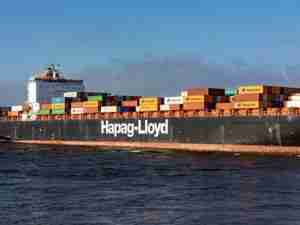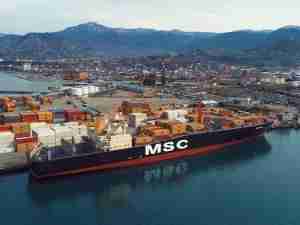While the NCBFAA letter applauded this final rule, the Association remarked that the 'benefits of the exemption have been mitigated by the retention and/or imposition of unnecessary restrictions.'' In view of this, the Association asked that the FMC 'reopen' the proceeding to 'complete the job started by the final rule issued in this docket.'
To support its request for a reopening of the proceeding, the NCBFAA highlighted five topical issues arising in Docket No. 10-03 that it argued would justify reopening of those proceedings by the FMC.' These topical areas, and a brief summary of the arguments presented by the Association, are as follows.
Limits on Inclusion of Certain Economic Issues
NCBFAA argued in favor of allowing for the incorporation of additional contractual elements in the NRA.' It wrote, '[t]o the extent traffic moving under an NRA covers a time period during which underlying vessel operators impose [general rate increases], precluding NVOCCs and their customers from covering this topic in an NRA reduces the value of exemption and seems arbitrary.' It is also difficult to understand why an NRA should not include items such as credit, minimum quantities, penalty provisions, and similar economic terms if the shipper and NVOCC agree.'
Modification
While the FMC wrote in its final rule, which did not allow for the modification of NRAs, that 'maintaining the integrity of NRA rates protects both the shipper and the NVOCC,' the Association's letter expressed its disagreement.' It remarked that '[t]he party most likely to be punished by the restriction against modification is the shipper, since its NVOCC service provider would be unable to reduce its rates in response to more attractive vessel operator rate offerings even if it wished to do so.'' The NCBFAA describes the prohibition on modification as 'even more rigid than would be the case if rates were memorialized in tariff form,' as those rates may be reduced on one day's notice.
Discrimination Provisions of Sections 10(b)(4) and 10(b)(8)
In its final rule, the FMC declined to extend the new rule's exemption to these provisions, which respectively prohibit common carriers from 'unfair or unjustly discriminatory practices in services pursuant to a tariff,' as well as 'undue or unreasonable preference or advantage or undue or unreasonable prejudice or disadvantage for tariff service.'' In response, the NCBFAA wrote that 'the reluctance to exempt NVOCCs from these provisions when they have negotiated rates with their customers is outdated...[i]f the shipper wants to consider moving its traffic under a regulatory scheme that includes rate tariffs and these antidiscrimination provisions, it need not enter into an NRA.'
Foreign NVOCCs
NCBFAA noted that the final rule indicated that the FMC would initiate proceedings to consider whether to extend the new exemption to foreign-based, registered, unlicensed NVOCCs.' The Association urged the FMC to begin this process.' Additionally, with an eye to the anticipated treatment of American NVOCCs abroad in the wake of the FMC rule, the Association expressed concern that in the absence of an FMC proceeding to extend the exemption to foreign NVOCCs 'it is just a









